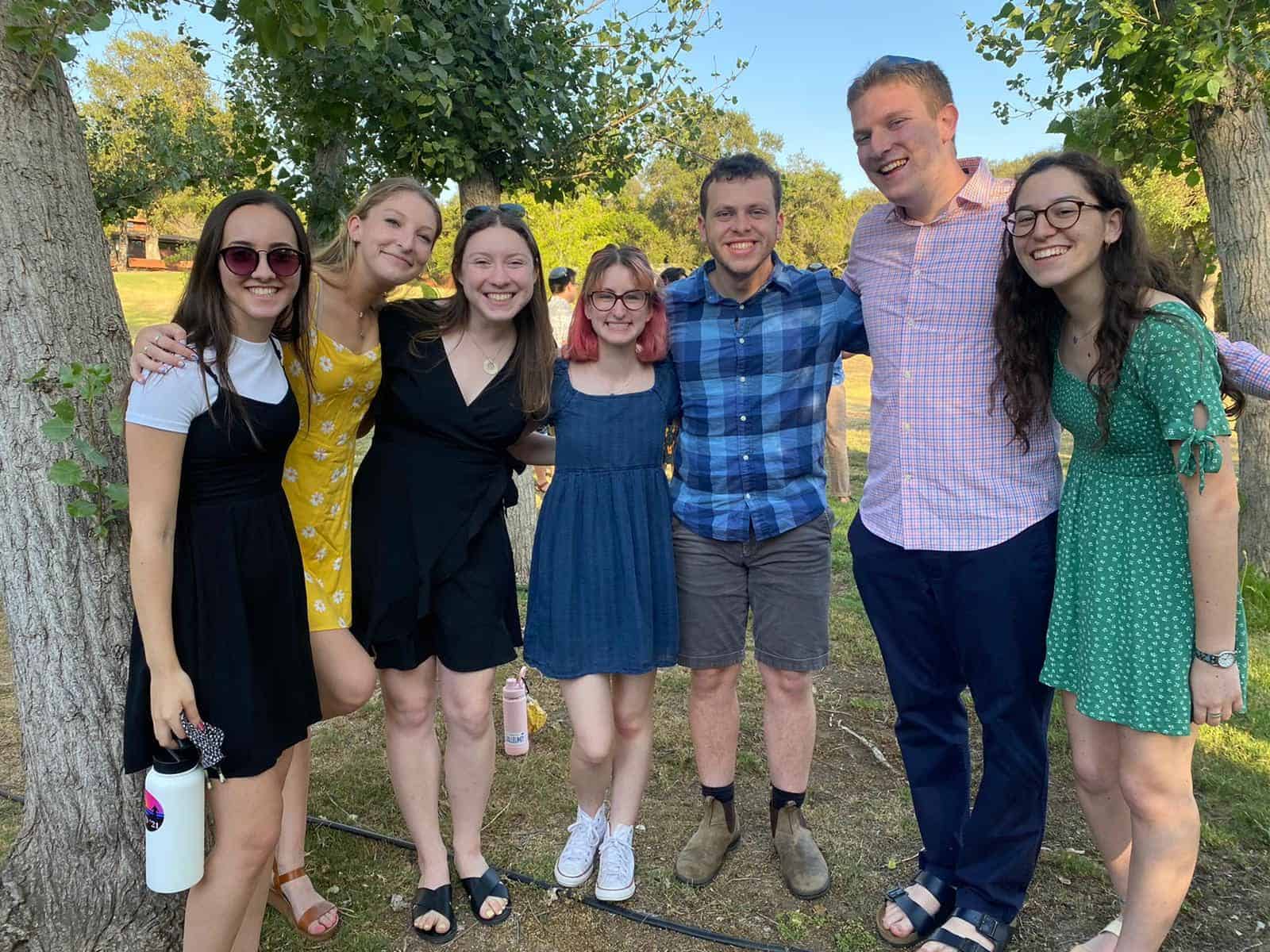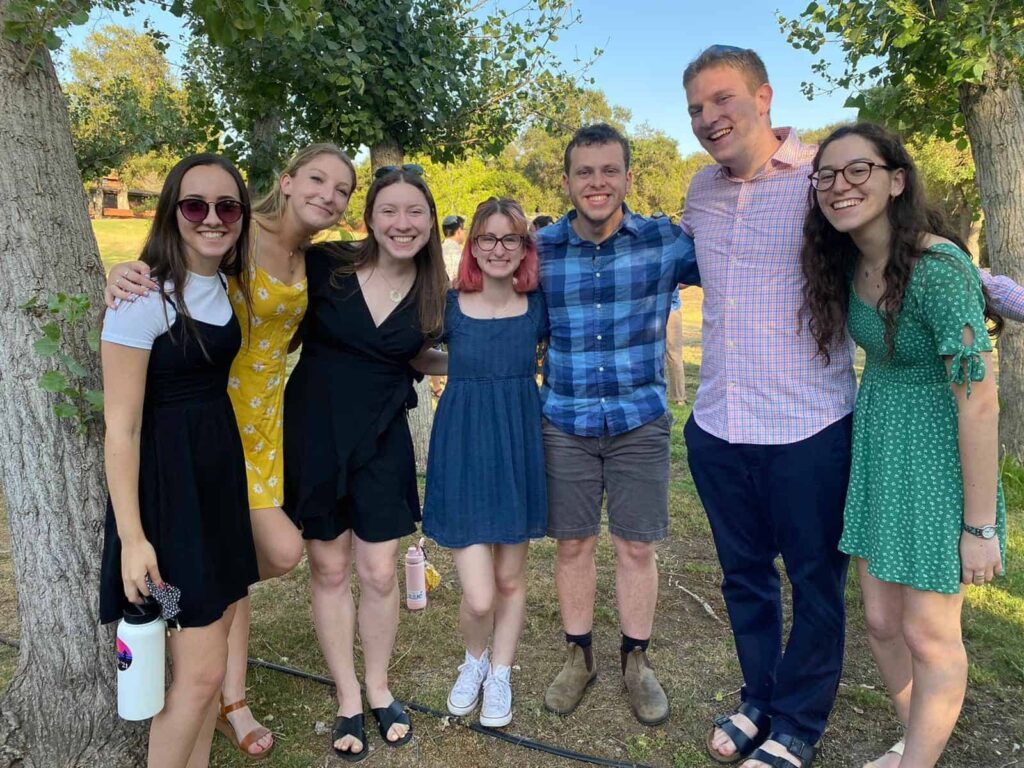Working with Gen-Z at Camp


For the past two years, we, Rachel and Adena, have watched the field of Jewish Camp grow and welcome a new generation of staff members. As the Mental Health, Diversity, Equity and Inclusion and the Day Camp and Early Childhood Fellows respectively, we both have spent the past two years working at Foundation for Jewish Camp and spending our summers as supervisors of both Gen Z staff and campers in our respective camp communities.
Many of us who have been working with camp staff over the last 3 years have experienced what it is like to work with and supervise Generation Z (born in 1997-2013) staff. Like us, you might have noticed that the expectations, values, and needs of this population look different than previous generations of camp staff. As both members and supervisors of Gen Z, we know that this is a generation looking for answers, advocacy, and deep connection. They prioritize mental health and consider working at camp as much more than another summer with their friends. As more members of Gen Z continue to join our camp staff and leadership, we know that this generation’s perspective and communication styles can sometimes create moments of tension between supervisors and staff in a camp environment. As Gen Z is expected to make up most of the staff population for the next 10-12 years, we want to help prepare you for what to expect when working with Gen Z. Our goal is to provide you with insights into what to anticipate when working with Gen Z and offer recommendations on how to effectively work with them rather than against them.

Social media has shaped the way that Gen Z understands and interacts with the world around them. Social media offers Gen Z a near constant look at what is happening in their local communities and empowers them to connect with like-minded peers to challenge norms and address issues that they deem important. When Gen Z staff arrive at camp, they often bring these online worldviews with them and seek out ways to share and address things that they experience and might not agree with. If Gen Z staff experience challenges at camp, they will tend to look directly to senior camp leadership instead of their direct supervisors to swiftly and meaningfully problem solve. When approaching these concerns, Gen Z appreciates responses that come from a place of empathy and understanding and clear next steps or obstacles. When changes are not viable, it is important to maintain transparency about those limitations. Gen Z has access to many successful models of advocacy through social media, and when empowered to take ownership of the changes they hope to see, they may surprise you.
Given the abundance of information readily accessible to Gen Z, it is only natural that they will expect that same level of transparency in the workplace. Striking a balance between openness and confidentiality, as appropriate, is crucial in laying the foundation for collaborating with Gen Z instead of creating a divide. When explaining camp policies and procedures, provide extra context on the “why” behind rules and don’t be afraid to share how these policies affect your own life. For example, while sharing about camp’s policy regarding no nuts on site, it could be helpful to share that you like to enjoy a peanut butter and jelly sandwich every day at lunch throughout the year , but when you come to camp, you enter an intentional community with guidelines in place to keep it safe for everyone. This shows the “why” behind the policy as well as a moment of transparency that Gen Z will find comforting. Be open to questions and set guidelines for your leadership team on ways to be transparent with staff and what information is appropriate to share.
Like many of us, Gen Z works best when supported in recognizable ways. using the tools that they are familiar with. Encouraging camp staff of any age to look for creative ways to introduce appropriate technology into camp programs, can be a great way to set your staff up for success. Cell phones and the internet are important tools that aid Gen Z in many different aspects of their personal and professional lives. While phone free spaces at camp can be a cherished camp practice, implementing a strict “No phones” policy for staff at camp will rarely stop Gen Z from finding ways to use their phones while working. It does, however, make it far more difficult to set clear guidelines for the ways that those technologies are being introduced at camp. Gen Z staff will often look to group messaging threads for updates and announcements throughout the day. Facilitating a platform for staff to share these announcements allows you to be sure that information being shared is accurate and constructive.
Similar to other aspects of camp life, the ways that we communicate our staff appreciation has evolved over the past decade. Simply buying food or providing a treat for hungry staff is not a reward and the traditional ways of appreciating staff, like extra swag, were impersonal and only added to the divide between staff and leadership. Gen Z seeks to establish genuine personal connections, and they desire to feel valued and appreciated in every relationship, including the workforce. When thinking about staff appreciation and incentives, consider the holistic value of working at camp. It is not just about another summer at camp and the salary, but about what non-monetary benefits you and camp are contributing to the relationship. How do you demonstrate that each staff member is valued? Create moments of personal connection with Gen Z. Offer personal touches to regular staff appreciation gifts and cater to what they want. Do not hesitate to inquire about what your staff would appreciate and adjust your staff appreciation plans to fit within your budget
Camp is ever evolving. We recognize that not all of these strategies will resonate with all Gen Z staff. The most significant takeaway from our interactions with Gen Z is the importance of leading with empathy and showcasing understanding and support. As they learn about working at camp, we, as camp leadership, are also learning how to collaborate with them. We know camp is changing because the stories our grandparents share about their days at summer camp sound different to the ones we share with our friends. For camp to continue to grow, leadership must be ready to adapt to each new generation’s contributions. Gen Z presents us with an opportunity to reexamine established camp practices, challenge conventions, and align with current trends. As camp professionals, our task is to remain prepared and attentive to our community’s voices. The more we work with Gen Z in mutually beneficial ways, the more our camps will continue to prosper.
Adena Leon is the Day Camp and Early Childhood Education Fellow at Foundation for Jewish Camp. She spent the last 16 years as a camper, counselor, unit head, and program manager at Camp Ramah in California. After the Fellowship, Adena will be joining the Children and Families team at the Marlene Meyerson JCC as the Assistant Director of Camp and Community Engagement.
Rachel Anszelowicz is the Mental Health, Diversity, Equity, and Inclusion Fellow at Foundation for Jewish Camp. She is a lifelong camp person and has spent the last ten summers on staff at NJY Camps. After the Fellowship, Rachel is excited to be joining the team at URJ Crane Lake Camp as the Assistant Director of Staff Recruitment & Engagement.

